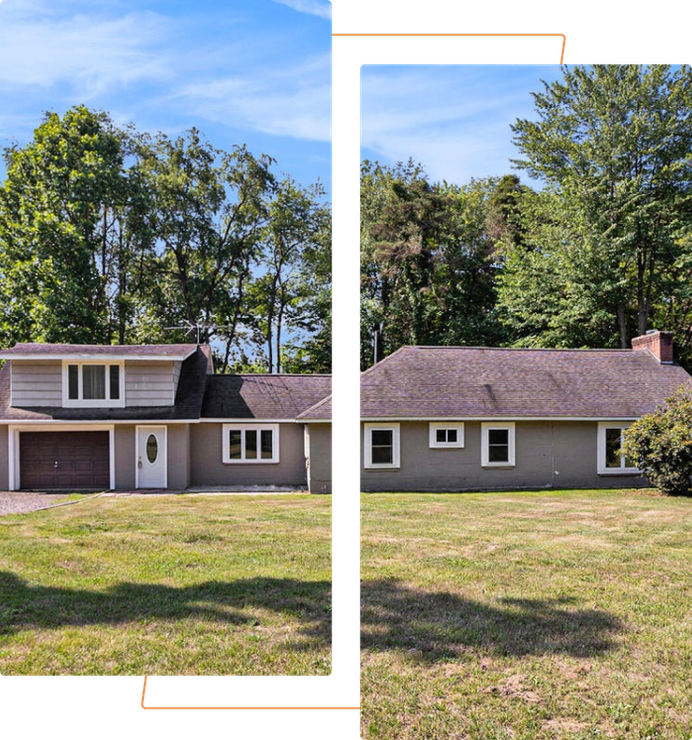327 W. Main Street, Suite 2, PO Box 65 Ionia, MI 48846
CALL US TODAY 616.522.6006
trust • integrity • reliability
real estate experts in ionia county and surrounding areas

Fill in the form below and one of our agents will contact you soon.
We will get back to you as soon as possible
Please try again later

Real Estate Agents in Ionia County
Few people pursue the dream of home ownership with as much zeal, vigor, and thrift as Americans. But with the limited number of homes in the current market, you need a
real estate agency
with the right connections, technology, and strategy to find the home of your dreams.
Whether you’re feeling overwhelmed, confused, or just need someone else to take the wheel,
Riverside Realty
has your back. Our four reliable
real estate agents
bring decades of experience to the table, striving to exceed expectations every step of the way. We offer unparalleled, 24/7 customer service to serve you anytime, anywhere.
Remember, where you live can affect how you live. Talk to the
real estate brokers
at Riverside Realty to take a step closer to the home you’ve always wanted.
Current Listings
Why Choose
Riverside Realty?
Riverside Realty
is your trusted partner in residential and
commercial real estate. Our highly skilled
real estate agents
bring a wealth of knowledge and expertise to every transaction, ensuring you receive the best advice throughout.
What’s more, we have a diverse portfolio of properties for you to browse, ranging from luxurious and sprawling to compact and utilitarian. No matter what you need, you’re sure to find it with us.
Choosing the right
real estate agent
can make or break your buying experience. Here at
Riverside Realty, we’re dedicated to winning your trust and delivering outstanding results. Contact us today to begin your real estate journey with confidence!

Our Core Values

Trust
Trust is the cornerstone of our real estate agency. We value transparency and honesty in all our dealings. You can rely on us to provide accurate and updated information about properties, market trends, and legal issues.

Integrity
We hold ourselves to the highest ethical standards and treat every client with fairness, respect, and sincerity. Our team of real estate market experts believes in doing things right, even when no one’s watching.

Reliability
When it comes to real estate, reliability is crucial. You need a partner who can deliver on their promises, no questions asked. With Riverside Realty’s proven track record of success, you know you’re getting real estate experts who do as they say.

Confidentiality
Your privacy matters to us, and we take great care in handling your personal information securely and discreetly. Our team is trained to handle sensitive details with utmost confidentiality, so you have nothing to worry about.
Our Real Estate
Services
We understand that choosing a Realtor is no easy task. We know that everyone has lives and we try our hardest to work with your life situations and schedules. If you have questions, concerns, or would like to get to know us more, we encourage you to stop by our office and feel the difference for yourself! We also are actively involved with the community and would love to chat with you at a sporting event, community gather, or just around town.

Buy a Property
Looking for your dream home? Our real estate agents can help! From identifying needs and preferences to finding the perfect home and negotiating a deal on your behalf, we can do it all!
Looking for your dream home? Our real estate agents can help! From identifying needs and preferences to finding the perfect home and negotiating a deal on your behalf, we can do it all!
At Riverside Realty, we’re committed to maximizing the value of your property and ensuring a smooth and successful sale. Trust us to attract qualified buyers and hammer out the best possible price for you!

Sell a Property
At Riverside Realty, we’re committed to maximizing the value of your property and ensuring a smooth and successful sale. Trust us to attract qualified buyers and hammer out the best possible price for you!
Client Testimonials
Nick N.
Riverside Realty went above and beyond to make sure we were both informed and satisfied every step of the home buying process! They are both passionate and competent and will do whatever it takes to get you into the perfect home!
McKenzie T.
“Amazing! Answered every question we had and so helpful! We loved working with them and we can't wait to move into our new home!”
Isaac M.
“Riverside Realty made purchasing our first home a breeze! Aimee knows the ins and outs of real estate and makes the process fun. She helped us find the perfect house and location. Highly recommend!”
Our "KNOCK, KNOCK" Blog posts


Want to buy or sell property?
Call us today
Quick Links
Properties
Agents
Quick Links
Properties
Agents
Contact Info

327 W. Main Street, Suite 2, PO Box 65 Ionia, MI 48846

Monday-Sunday (By Appointment)
- Licensed REALTORS® & Real Estate BROKERS®
- Members of the National Association of REALTORS®
- Members of the Michigan Association of REALTORS®
- Members of the Greater Regional Alliance of REALTORS®
Riverside Realty is a Christian-based company that was born in 2017, when James Buxton and Aimee Knudson were introduced to each other through a mutual friend, as both were looking to make changes in their individual real estate careers.
website by SPECK DESIGNS





